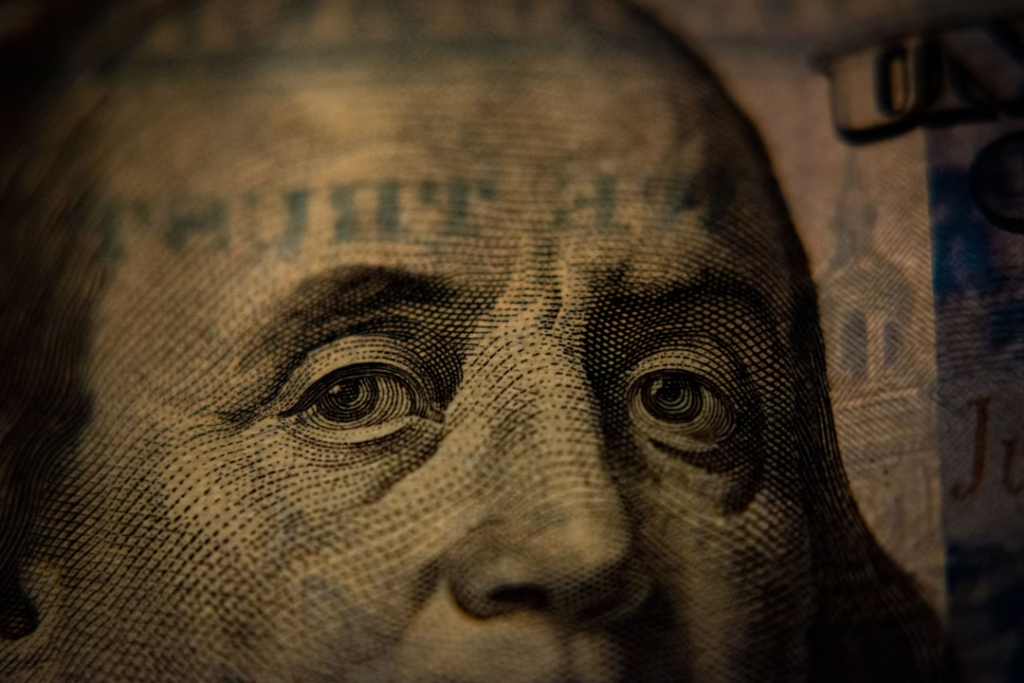Trump created the fastest decline since 1973
The United States dollar is losing its power. I know the economy can feel like something that only Wall Street or politicians talk about but this latest news? It hits closer to home than most people think.

Sunday, Ali Velshi on MSNBC had a segment on the fall of the dollar, and it made me think, what does this mean to me, you, us?
The U.S. dollar just hit a new low. And while that might sound like a bunch of financial mumbo jumbo, it actually affects everything from our grocery bills to gas prices and even how safe and secure America is on the world stage.
So let’s break it down.
What Happens When the Dollar Falls?
When I owned a store, “Mentionables” on Hollywood Blvd (eons ago), it was great to have a weak dollar. This meant tourists had more money to spend in my shop, but it also meant locals would shop less, and it cost me more for everything I purchased.
Think of the U.S. dollar like America’s handshake to the world. It’s the currency everyone counts on for trade, saving, and stability. So when the dollar drops in value, it’s like our handshake gets a little weaker. And that’s a big deal.
Here’s what that means for regular folks like us:
- Things we buy from abroad cost more. From iPhones to avocados, most of the stuff we import gets more expensive.
- Traveling gets pricier. Heading overseas? Your dollars won’t stretch as far.
- Inflation can creep back in. If the dollar keeps losing value, our everyday bills might start inching up again, just when we thought inflation was cooling.
Now, there is a bit of a silver lining…
- American-made goods are cheaper overseas. That might help factories and small businesses here sell more to other countries.
- Eventually, it might boost jobs in manufacturing, especially in towns that need the work.
But before we pop the champagne, there’s more going on behind the scenes.
Foreign Investors Are Getting Nervous
Here’s the thing: For decades, other countries, such as China, Japan, and even Norway, have bought U.S. Treasury bonds. It’s like they were loaning us money because they trusted us to pay it back. But now? They’re slowly backing off. Trust in the United States’ stability is eroding.
According to a 2025 report by the Atlantic Council, foreign investors are selling off U.S. debt more aggressively than they have in over a decade.
Why?
- Our political chaos doesn’t help. Debt fights, shutdown threats, and big spending bills scare off cautious investors.
- Trade wars with countries like China make them less likely to rely on the dollar.
- Other currencies like China’s yuan are trying to step into the spotlight.Share
Could China Replace the Dollar?
Not yet—but they’re trying.
China has been quietly pushing its currency, the yuan (or renminbi), as an alternative. They’re making trade deals with Russia, Brazil, and oil-rich countries using their own money instead of ours. They even created their own digital currency and payment system to get around the dollar-based SWIFT network.
Still, most global business is still done in dollars—over 80% of international trade and about 60% of global reserves, per the IMF.
But the more countries that start avoiding the dollar? The more fragile our position becomes.
The Trade War Isn’t Helping
Remember all the talk about tariffs and bringing jobs back from China? That’s part of the story.
On paper, it sounds good: “Buy American.” But in practice, it’s made things more tense internationally. China responded by pulling back on its dollar holdings and investing in alternatives—same with Russia, and even some U.S. allies.
The more we weaponize the dollar, the more other countries look for ways around it. One example is Canada, which is actively looking for other trading partners to avoid the United States altogether. America loses in this scenario.
Why You Should Care, Even If You Don’t Own Stocks
Let’s bring it back to our neighborhood.
- Your mortgage or credit card interest most likely will go up because higher borrowing costs trickle down from weaker investor demand.
- Your groceries will cost more, especially if they come from abroad.
- Our government debt gets more expensive, which means less money for schools, roads, or Social Security.
- And if the dollar keeps losing ground, America might lose the power it’s had for decades to enforce sanctions, negotiate from strength, or respond to global crises.
Think of it like this: If fewer people trust your bank, your checks might bounce more often. That’s kind of what’s happening with the dollar right now.
What Can We Do?
Well, most of us aren’t running the Fed or writing trade policy. But we can stay informed and demand smart choices from our leaders.
- We need to stabilize our debt and stop scaring off investors with political stunts. Trump must stop his Tweets (X posts) changing tariff rates on a whim.
- We need thoughtful trade policy, not just tariffs and executive Tweets.
- And we should invest in making things here at home, not just slapping on patriotic slogans.
Because at the end of the day, the strength of the dollar isn’t just about Wall Street. It’s about trust. And trust, like any good neighborhood, takes years to build, and only seconds to lose.
So yeah, the dollar’s slipping. But we’ve still got the tools to fix it. We must use them wisely, lest someone else rewrite the rules and America loses its standing, which took over 250 years to build.
–Citizen Ben
Citizen Ben is a reader-supported publication with no corporate sponsors. To receive new posts, podcasts, and support my work, please consider becoming a free or paid subscriber.



